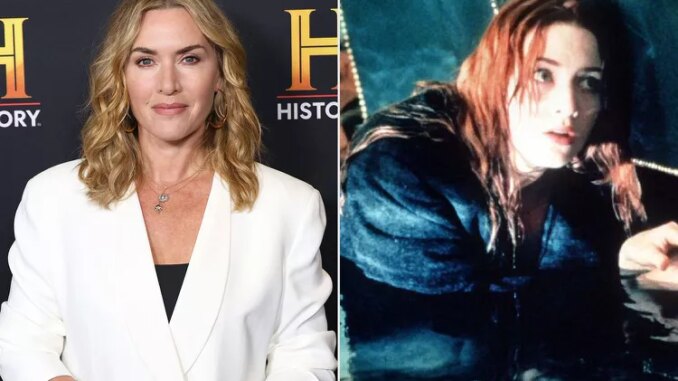
The Ghost of 'Rose's Door': How a Viral Video Rekindles the Titanic's Cold Debate
The icy waters of the North Atlantic may have swallowed the Titanic, but the debate surrounding one particular piece of debris has remained stubbornly afloat for over two decades. Like barnacles clinging to a rusted hull, the question of whether Jack Dawson could have joined Rose DeWitt Bukater on that fateful door has resurfaced once again, this time fueled by the explosive power of a viral video featuring none other than Kate Winslet herself. This latest iteration of "Door-gate" isn't just a trivial squabble over fictional physics; it's a testament to the film's enduring power, the human need for resolution, and the frustrating ambiguity that lies at the heart of storytelling.
The video, likely a behind-the-scenes snippet from a recent interview or talk show, typically depicts Winslet being confronted with the age-old question: “Could Jack have fit on the door?” Her response, often a wry smile followed by a diplomatic but ultimately ambiguous answer, is invariably clipped, looped, and endlessly dissected by armchair experts. Within hours, social media explodes. Engineers dust off their calculations, arguing about buoyancy, weight distribution, and water displacement. Film critics weigh in on the narrative necessity of Jack's sacrifice. And casual viewers, armed with nothing but their gut feelings and memories of a tearful Leonardo DiCaprio sinking into the abyss, passionately defend their positions.
This latest wave of debate underscores the film's remarkable longevity. "Titanic" isn't just a movie; it's a cultural touchstone, a shared experience that has indelibly marked generations. The emotional resonance of Jack and Rose's doomed love story has etched itself into the collective consciousness, making even the most minor inconsistencies – or perceived inconsistencies – feel deeply personal. The image of Rose clinging to the door, a symbol of survival amidst unimaginable tragedy, is so iconic that any challenge to its integrity feels like an affront to the entire film.
Furthermore, the persistence of the debate reflects a fundamental human desire for resolution, particularly in the face of tragedy. We yearn for answers, for logical explanations that can alleviate the discomfort of uncertainty. The thought that Jack's death might have been avoidable, that a simple adjustment in posture or a shared life vest could have altered the course of history, is profoundly unsettling. It highlights the capriciousness of fate and the agonizing randomness of survival, forces that are difficult to reconcile with our innate desire for order and justice. The debate about the door becomes a proxy for the larger, more unanswerable questions surrounding the disaster itself: Why did this happen? Could it have been prevented?
However, the heart of the matter lies not in scientific calculations or historical accuracy, but in the art of storytelling. James Cameron, the film's director, has repeatedly emphasized that Jack's death was a narrative imperative, a necessary sacrifice to elevate Rose's journey of self-discovery and ultimately allow her to live a full and meaningful life. His argument is that the story demanded a tragic ending, and that the logistics of the door are secondary to the emotional impact of Jack's demise.
This narrative necessity, however, doesn't necessarily appease the masses. The very best stories, the ones that truly resonate, often leave us with a lingering sense of unease, of questions left unanswered, of potential realities unexplored. The "Titanic" door debate, in its endless iterations, is a testament to this. It forces us to confront the ambiguities inherent in storytelling, the delicate balance between realism and artistic license, and the enduring power of a well-crafted narrative to ignite our imaginations and fuel our collective anxieties.
In conclusion, the resurgence of the "Titanic" door debate, sparked by a viral video of Kate Winslet, is more than just a fleeting internet trend. It's a reflection of the film's enduring legacy, our innate desire for resolution in the face of tragedy, and the inherent ambiguity that lies at the heart of compelling storytelling. While the scientific feasibility of Jack sharing the door may remain a point of contention, the real truth lies in the narrative power of his sacrifice, a sacrifice that continues to resonate with audiences long after the ship has sunk and the waves have settled. The ghost of 'Rose's door' will likely haunt the cinematic landscape for years to come, a constant reminder that sometimes, the most compelling stories are the ones that leave us questioning, arguing, and ultimately, feeling.